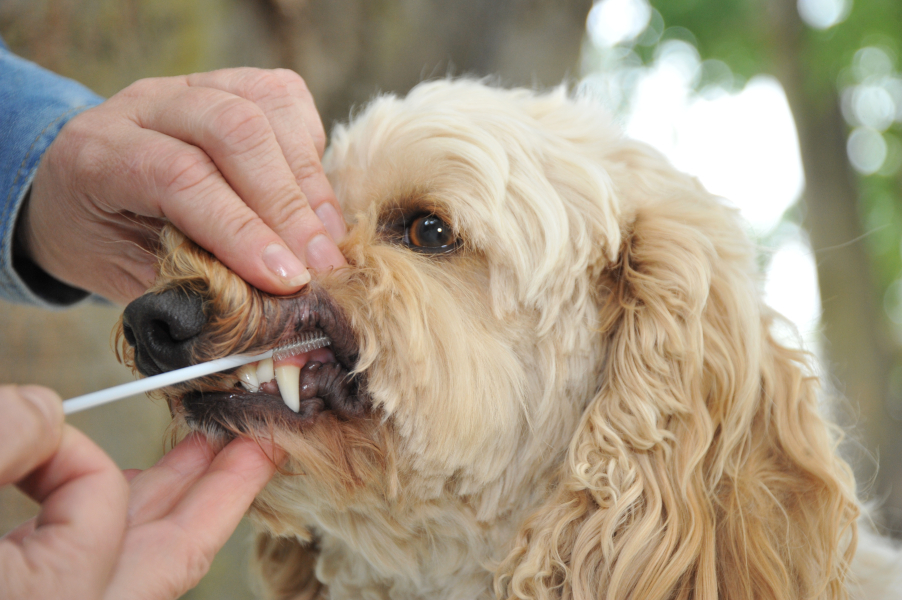Quick Summary
Click here for Price and Turnaround Time
Phenotype: Affected dogs typically display abnormal kidney function that is characterized by increased urination, excessive drinking and the presence of glucose in the urine despite normal blood glucose levels. Some dogs may also display weight loss, weakness and urinary incontinence.
Mode of Inheritance: Autosomal recessive
Alleles: N = Normal, FS = Fanconi Syndrome
Breeds appropriate for testing: Basenji
Explanation of results:
• Dogs with N/N genotype are expected to not have Fanconi syndrome. They cannot transmit this FS allele to any of their offspring.
• Dogs with N/FS genotype have one copy of this FS allele and are expected to not have Fanconi syndrome but are carriers. They will transmit this FS allele to 50% of their offspring. Matings between two carriers of FS may, on average, produce 25% of puppies with Fanconi syndrome.
• Dogs with FS/FS genotypes are homozygous for this FS allele and will display signs of Fanconi syndrome.
Basenji Health Panel
$105 per animal
Sample Collection
Dog DNA tests are carried out using cells brushed from your dog's cheeks and gums. The preferred cytology brushes are sent to you by mail, or you may provide your own brushes. For accepted alternative brushes, click here
We recommend waiting until puppies are at least three weeks old before testing.

Step-By-Step:
- Make sure the dog has not had anything to eat or drink for at least 1 hour prior to collecting sample.
- When swabbing puppies, isolate each puppy from the mother, littermates and any shared toys for 1 hour prior to swabbing. Puppies should not have nursed or eaten for 1 hour prior to collecting sample.
- If collecting samples from more than one dog, make sure to sample one dog at a time and wash your hands before swabbing another dog.
- Label brush sleeve with name or ID of dog to be sampled.
- Open brush sleeve by arrow and remove one brush by its handle.
- Place bristle head between the dog’s gums and cheek and press lightly on the outside of the cheek while rubbing or rotating the brush back and forth for 15 seconds.
- Wave the brush in the air for 20 seconds to air dry.
- Insert brush back into sleeve.
- Repeat steps 5 - 8 for each unused brush in sleeve on a fresh area of cheek and gums. Make sure to use and return all brushes sent by the VGL. In most cases, it will be 3 brushes per dog. If using interdental gum brushes, please note that the VGL requires 4 brushes per dog and only moderate or wide interdental gum brushes are accepted.
- Do not seal brushes in sleeve.
- Place all samples in an envelope and return to the address provided.
ATTENTION:
- Do not collect saliva/drool – the key to obtaining a good sample is getting cheek cells on the swab
- Do not rub swab on the dog’s tongue or teeth – this will result in poor quality sample
- Do not collect a sample from a puppy that has recently nursed – the mother’s genetic material can rub off on the puppy’s mouth and contaminate the sample
Fanconi syndrome is a heritable kidney disorder that affects Basenjis. A genetic variant in the Fanconi associated nuclease 1 (FAN1) gene has been implicated as the causative mutation for Fanconi syndrome in the Basenji.
Affected dogs typically display abnormal kidney function around 4-8 years of age, characterized by reduced ability to reabsorb water, nutrients and electrolytes and resulting in increased urination and excessive drinking. Another common finding is the presence of glucose in the urine despite normal blood glucose levels. Some dogs may also display weight loss, weakness and urinary incontinence. If left untreated, the disease can progress to chronic kidney failure.
Testing recommendations: DNA testing for Fanconi syndrome can determine the genetic status of dogs. Dogs with one copy of the FS allele are normal but are carriers. Matings between two carrier dogs may, on average, produce 25% of puppies with Fanconi syndrome.



